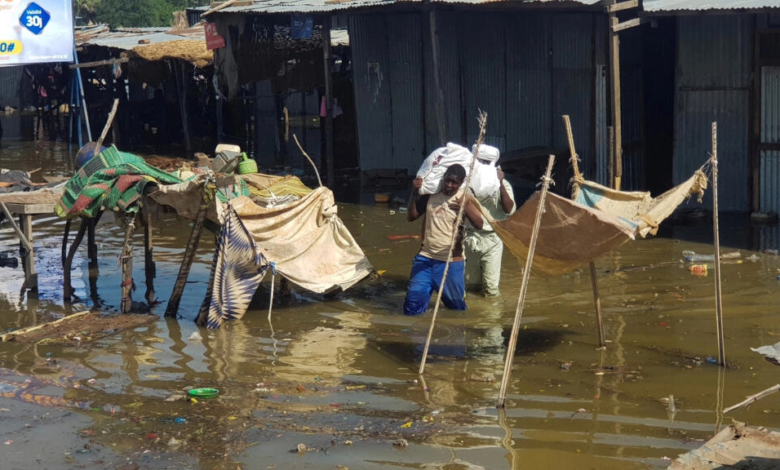Chadian Leader Declares State Of Emergency As Floods Displace More Than 1 Million Persons
The most affected provinces are Mayo Kebbi East, Logone Occidental, Tandjile, Moyen Chari, and Mandoul.

The leader of Chad’s Transitional Military Council, General Mahamat Idris Deby Itno, on Wednesday, Oct. 19, signed a decree declaring a state of emergency “in order to best contain and manage this natural catastrophic situation following terrible floods that have hit the country for several weeks and affected more than one million persons occasioned by heavy torrential rains.”
According to the President, the said floods have affected 636 locations in 18 of the country’s 23 provinces and covered over 465,000 hectares of farmland, with 19,000 herds of cattle swept away by the waters.
The most affected provinces are Mayo Kebbi East, Logone Occidental, Tandjile, Moyen Chari, and Mandoul.
“A state of emergency has been instituted to best contain and manage this natural catastrophic situation,” the Chadian leader declared, warning of “the risk of generalised disarray if the rising waters remain constant during the week. The hardest hit zones are the city of N’Djamena and its environs.”
He also warned that the situation risks worsening in the days to come, especially in the capital, N’Djamena, where according to statistics communicated by national authorities, the level of water increases by nine centimetres each day and the Chari river has risen above 800cm.
The United Nations Office for the Coordination of Humanitarian Affairs (UNOCHA) in Chad says 1,001,791 persons had been affected by the floods as of Oct. 13, and President Deby has called on “friendly countries” and Chad’s “technical and financial partners to support the efforts of the government” in containing the catastrophe.
In 2021, the United Nations estimated that 5.5 million Chadians, which is more than one-third of the country’s population, were in need of emergency humanitarian assistance.
Meanwhile, the Chadian Minister of Territorial Development, Mahamat Assileck Halata, on Wednesday, Oct. 19, visited several quarters in the 9th district of the capital which have been hardest hit by the floods and promised a rapid government response to the situation.
In Digangali quarter, the minister said he was shocked by the number of persons who have been rendered homeless after their houses were invaded and destroyed by water from the Chari and Logone river.
In Ngueli, most of the market has been covered by water, and the young and the old have been working together to block the waters from completely submerging the area. Some humanitarian organisations have also been assisting affected persons in installing tents for cover.
In Toukra, dykes are being constructed to block the water, but this is not quite successful because some of the water is sprouting from under the ground, and most inhabitants are preparing to quit the area.
“All this is not acceptable. We have to put things in place so that we can save what is possible and reflect afterwards on how we can assist this population. We have to put up sand ridges with sacks. There is much to be done. We should not think that people are not conscious of what is happening. The president of the republic has been following what is happening by the hour,” Mahamat Assileck declared.
In some quarters, however, inhabitants condemned what they described as government inaction or its late awakening and youths in some of the quarters visited by Minister Assileck virtually chased him away.
Support Our Journalism
There are millions of ordinary people affected by conflict in Africa whose stories are missing in the mainstream media. HumAngle is determined to tell those challenging and under-reported stories, hoping that the people impacted by these conflicts will find the safety and security they deserve.
To ensure that we continue to provide public service coverage, we have a small favour to ask you. We want you to be part of our journalistic endeavour by contributing a token to us.
Your donation will further promote a robust, free, and independent media.
Donate HereStay Closer To The Stories That Matter




